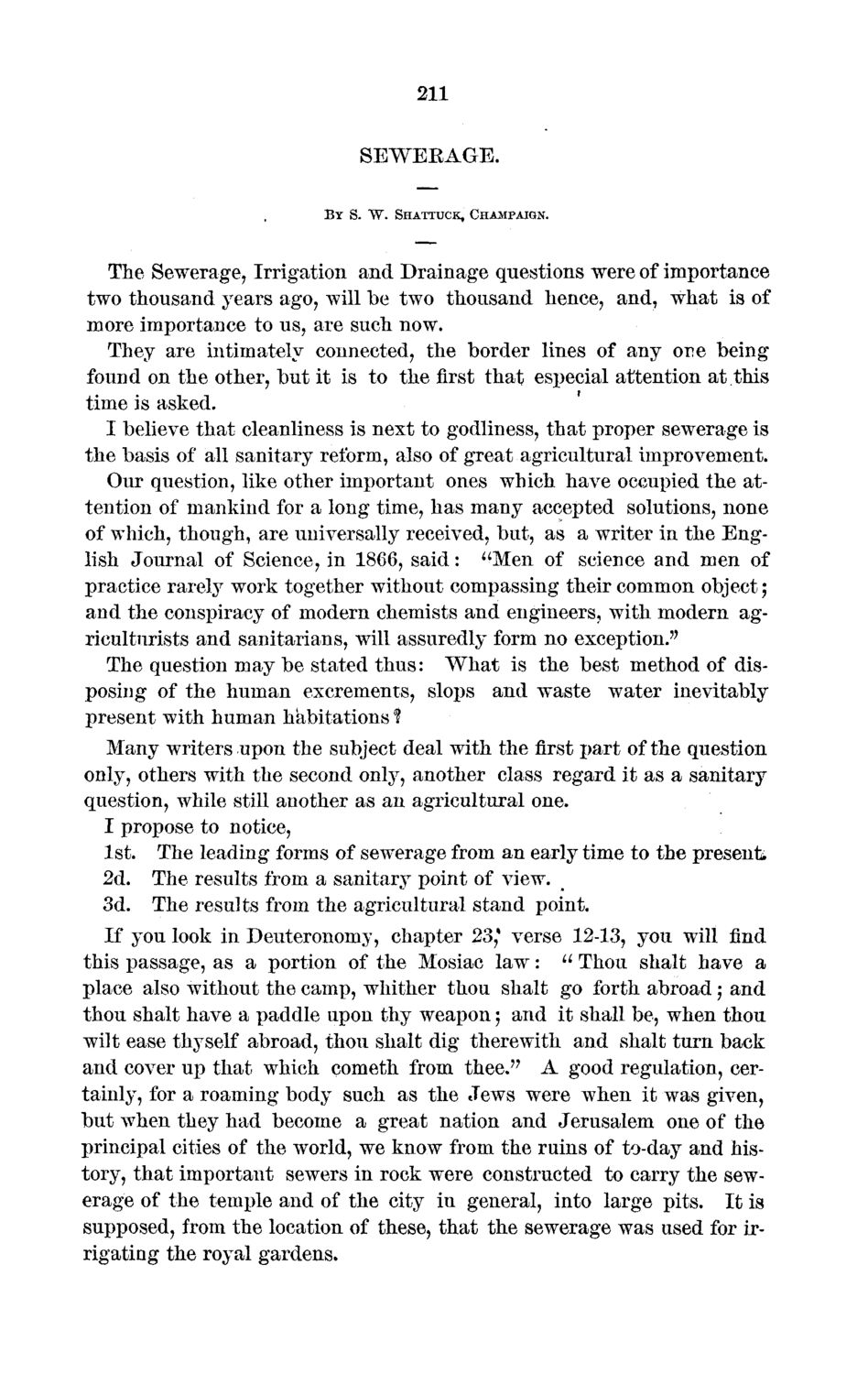| |
| |
Caption: Board of Trustees Minutes - 1872
This is a reduced-resolution page image for fast online browsing.

EXTRACTED TEXT FROM PAGE:
211 SEWEEAGE. B Y S. W. SHATTUCK, CHAMPAIGN. The Sewerage, Irrigation and Drainage questions were of importance two thousand years ago, will be two thousand hence, and, what is of more importance to us, are such now. They are intimately connected, the border lines of any one being found on the other, but it is to the first that especial attention at this time is asked. I believe that cleanliness is next to godliness, that proper sewerage is the basis of all sanitary reform, also of great agricultural improvement. Our question, like other important ones which have occupied the attention of mankind for a long time, has many accepted solutions, none of which, though, are universally received, but, as a writer in the English Journal of Science, in 1866, said: "Men of science and men of practice rarely work together without compassing their common object; and the conspiracy of modern chemists and engineers, with modern agriculturists and sanitarians, will assuredly form no exception." The question may be stated thus: What is the best method of disposing of the human excrements, slops and waste water inevitably present with human habitations ? Many writers upon the subject deal with the first part of the question only, others with the second only, another class regard it as a sanitary question, while still another as an agricultural one. I propose to notice, 1st. The leading forms of sewerage from an early time to the present; 2d. The results from a sanitary point of view. 3d. The results from the agricultural stand point. If you look in Deuteronomy, chapter 23,* verse 12-13, you will find this passage, as a portion of the Mosiac law: " Thou shalt have a place also without the camp, whither thou shalt go forth abroad j and thou shalt have a paddle upon thy weapon ; and it shall be, when thou wilt ease thyself abroad, thou shalt dig therewith and shalt turn back and cover up that which cometh from thee." A good regulation, certainly, for a roaming body such as the Jews were when it was given, but when they had become a great nation and Jerusalem one of the principal cities of the world, we know from the ruins of to-day and history, that important sewers in rock were constructed to carry the sewerage of the temple and of the city in general, into large pits. It is supposed, from the location of these, that the sewerage was used for irrigating the royal gardens.
| |